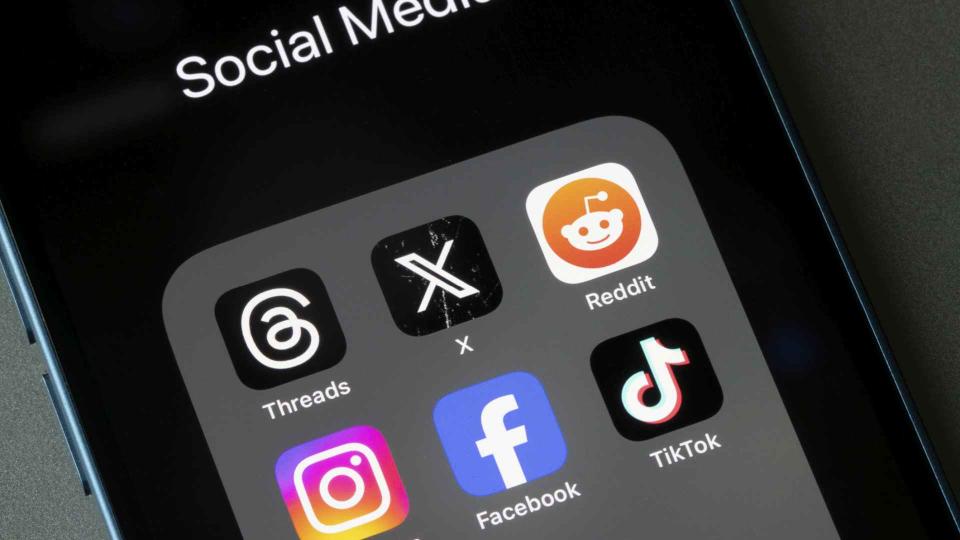3 Social Media Apps To Delete If You Want To Save Money

While social media apps are a great way to communicate with loved ones, check in on your favorite celebrities and find creative inspiration, social media also has its downsides. The most prominent is the fact that social media is proven to enable poor spending habits.
Discover More: 6 Things the Middle Class Should Sell To Build Their Savings
Learn More: 3 Genius Things All Wealthy People Do With Their Money
Through ads, influencers selling products or informing you about products you supposedly need to have, social media convinces you to buy whatever your friends or celebrities have – even if you can’t afford it. Through the encouragement of buy now, pay later services or in-app shopping features, social media makes spending not only enticing but easy.
Social media is also full of misleading financial information that encourages poor financial habits further. A third of Gen Z rely on TikTok for financial advice, according to a GOBankingRates survey. Another survey from InCharge Debt Solutions found that more than 50% of Gen Z said they relied on TikTok for financial planning information and Instagram for general financial advice.
With this knowledge in hand, here are the social media apps that users should get rid of if they want to steer clear of bad advice and curb poor spending habits.
Many consumers may wonder why, not too long after discussing something out loud, they soon see an ad for it pop up on their Facebook feed. While this may be perceived as a coincidence, there is actually a reason for this phenomenon.
“It’s not that Facebook has a camera in your head; it’s that it can see your online data,” said Scott Lieberman, founder of Touchdown Money. “When you travel to a website, Facebook knows you might be thinking about a related purchase and targets you.”
Through targeted social media ads, users are more likely to purchase an item. In fact, according to Survey Monkey, 48% of social media users have purchased something after seeing it in an ad.
Check Out: 5 Unnecessary Bills You Should Stop Paying in 2024
Instagram is the second most popular social media app for Gen Z, just behind YouTube. It’s also a hotspot for influencers, many of whom are partnered with big-name brands to promote their products. These influencers and brands have a big hold on their followers, as 76% of U.S. social media users say they’ve purchased a product after seeing it in a brand’s social media post, according to a study by Curalate.
“It’s easy to click on their links when you see their products,” Lieberman said. “Avoiding these types of [accounts] can limit your spending.”
TikTok
Similar to Instagram, TikTok is full of influencers, and its algorithm will send you what it thinks you want to buy. Also, with its in-app shopping platform, TikTok Shop, users can buy discounted products from sellers without ever leaving the app. Through its combination of user-generated content and a simplified shopping experience, TikTok Shop can heavily feed into your impulse spending habits.
How To Stay Financially Savvy
Among these social media apps, there isn’t one that outweighs the other in terms of how much influence it has on consumers. What matters is how often one uses these apps, what kinds of ads you see and how vulnerable you are to these ads.
“Reducing your time spent on these apps, as well as consciously curating your social media feed so that you’re faced with less opportunities to spend, are both key practices here,” said Erika Kullberg, attorney and personal finance expert. “And if you need to take hard action to cut out a bad habit, then going ahead and deleting one or more of these apps is a great idea.”
It’s also important to keep track of which apps generate the ads that trigger your spending urges the most.
“It happens so quickly that it can be easy to miss,” Kullberg said, “but reducing your time on whichever apps trigger that impulse the most will help you cut down on unnecessary spending and prioritize saving.”
While social media has many benefits, it can easily waste both your time and money if you don’t use it carefully.
“If you find yourself spending too much time on social media,” Lieberman said, “you could be sacrificing your health and your abilities to create the life you want.”
More From GOBankingRates
This article originally appeared on GOBankingRates.com: 3 Social Media Apps To Delete If You Want To Save Money

 Yahoo Finance
Yahoo Finance 